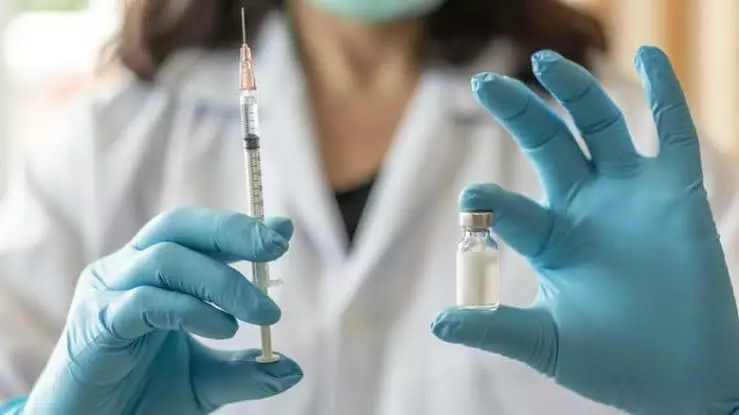Explained: Here's everything you need to know about India' first cervical cancer vaccine
To serve the purpose of the vaccine, the government will also have to ensure that they include this vaccine in free vaccination programmes like polio
By Newsmeter Network
Hyderabad: The first indigenous vaccine to prevent cervical cancer, Cervavac, developed by the Serum Institute of India will be available for Rs. 200 to 400 per dose. The vaccine has been approved by the Drug Controller of India and will be available later this year. Gynecologists explain how the indigenous vaccine can help prevent cervical cancer.
2nd most prevalent cancer in women
Cervical cancer is the second most prevalent cancer in women between the age of 15 to 44 years. It is caused by the human papillomavirus (HPV). Every year approximately 1.25 lakh women are diagnosed with cervical cancer and an estimated 75,000 succumb to the disease. Screening helps in early detection and vaccination helps in the prevention of the disease.
More common in rural India
Dr. Preeti Reddy, a senior gynecologist, says, "There are two imported vaccines available in the open market but they are priced at Rs. 10,000 to 15,000 which is out of reach for a maximum number of people. The indigenously manufactured vaccine is a great achievement and it must be made available to the masses. To build confidence in the people, it is important that stringent checks and proper evaluation of clinical data are done before giving the vaccine clearance."
Vaccination to be done in teenage yrs
There is a need to create awareness about the cervical cancer vaccine as it is to be given to teenage girls. Parents and young women have to be aware that the vaccine can help prevent cancer at a later stage. Experts say the government must create awareness and also ensure vaccine safety as that is the most important aspect.
Price matters
The vaccine will be available for Rs. 200 to 400. Dr. Mythri Sharan, a consultant gynecologist at Apollo Cradle & Children's Hospital, says, "Till now, vaccines for cervical cancer in the Indian market were mostly manufactured by foreign manufacturers. With the Indian company producing the vaccine, it must be available at an affordable price for all."
To serve the purpose of the vaccine, the government will also have to ensure that they include this vaccine in free vaccination programmes like polio.
Dr. Reddy explains, "The vaccine is to be given in three doses. The price of each dose will be an expense for the family. To ensure that the vaccine serves the purpose, the government will have to design a programme that is beneficial to women so as to reach out to the maximum number of women."